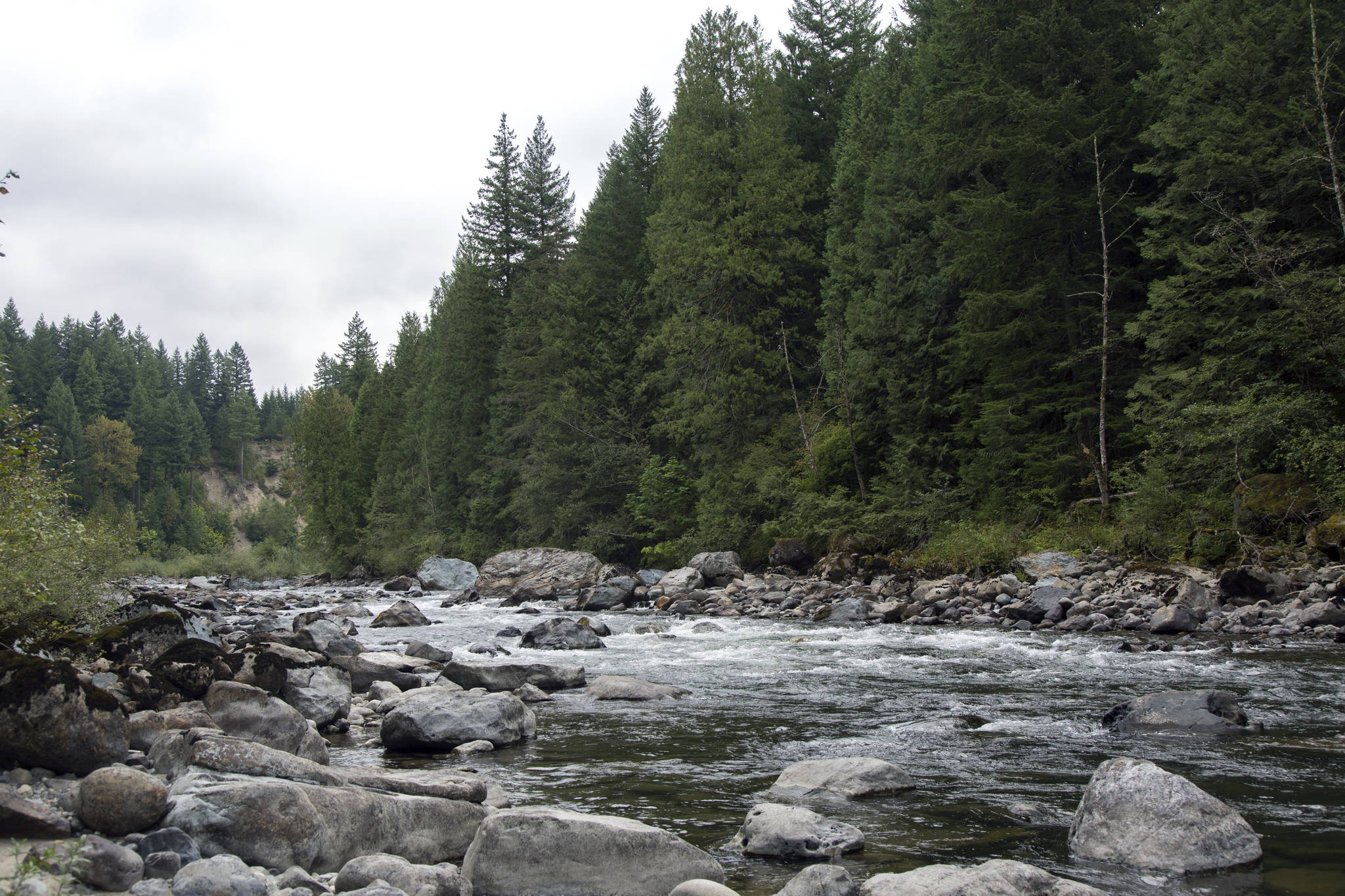North Bend failed to fully mitigate water use from its Centennial Well for six weeks this summer, after a city employee incorrectly installed a water meter.
The error, which began on July 2, was not found and corrected until Aug. 15, during which time some 6.3 million gallons of water were not put back into the Snoqualmie River as mitigation. North Bend later began pumping the water back into the river and had replenished it by the morning of Aug. 21.
According to a memo sent to the Washington state Department of Ecology as well as the Tulalip and Snoqualmie tribes, the error stemmed from an incorrectly installed water meter. Earlier this year, the city found that the flow meter at Centennial Well was incorrectly reading flow volume. To correct the issue, the city put out a request for bids from contractors to install the new meter.
The city received no bids and decided to install the meter with city staff. Two of the four signal cables were incorrectly placed in terminals and as a result the meter only recorded half of the flow that was passing through it. Centennial Well pulls, more or less, directly from the Snoqualmie River through a connected aquifer and is required to offset its use during times of the year when river flows are low.
“When fish are not provided sufficient water – they suffocate,” wrote Jean Buckner, president of Friends. “Water is to fish is what oxygen is to humans. We find it worrisome that the city doesn’t seem to understand that delivering water days, weeks or months after it was needed doesn’t ‘fix’ the damage already done.”
Ria Berns, regional supervisor for Ecology’s Water Resources program, said her department was notified within 24 hours of North Bend discovering the mistake. While Berns said the actual impact on the river was small, lowering it by around .06 inches, Ecology is concerned about possible larger mistakes.
“Ecology is always looking for full compliance and this does raise some red flags for us, so we are considering our formal response right now,” she said.
That response should be published in coming weeks, likely following a Sept. 10 meeting between her office, the city and the tribes. The response could include recommendations like having a backup water measuring device.
Friends said that describing flow in a river as a change in depth, rather than volume, minimizes the impact of the deficit.
“If you consider how wide the river is, it is actually quite an impact,” Buckner said.
River banks — where salmon are known to spawn typically from September to October — dry as rivers decrease in volume.
“Any withdrawal, surface or groundwater, is impacting the Snoqualmie River,” said Anne Savery, with the Tulalip Tribe. “As we continue to watch as streams run (lower) and fish runs decline, Tulalip is gravely concerned.”
She said while the tribe understands there can be operator errors made, North Bend should be able to manage its system and do things properly with the correct fail safes in place. They eagerly await the Golder Associates report, she said, examining the hydrology in the region. Its exact release date remains unknown as the report has been pushed back multiple times.
“It was our belief when North Bend had its first building moratorium and gained the water right, it would bring stability to our region,” Savery said. “However, we’d like to see North Bend being proactive rather than reacting. They’ve got water. They’ve got mitigation water. They have the pieces in place. And we are monitoring the situation closely.”
In response to the malfunction, North Bend published a report of error which included safeguards they will be implementing in the future. Safeguards include using contractors experienced in meter installation, using a backup water meter while doing repairs and only performing repairs during times of the years when mitigation isn’t usually needed.
“We take our duties under our water right permit extremely seriously,” said city spokesperson Jill Green in an email. “The unexpected metering error forced us to examine our internal processes which will lead to further safeguards in the system.”
Green did not return phone calls from the Valley Record seeking additional information.
Further, North Bend said it will formalize a request to Ecology to permanently convert a small Cascade Golf Course right from an irrigation to a mitigation source. The city attempted to use the golf course right while replenishing its water through Aug. 21, but a landowner — whose property the city would have had to cross with a pipe — wanted a formal agreement with the city first. The agreement would have taken at least a week, the city’s report said.
Berns said mitigation water was available from the city’s primary mitigation source — Hobo Springs — which is owned by Seattle Public Utilities. North Bend has failed to mitigate in the past, most recently during 2015 when the city violated its mitigation requirements multiple days due to human error.
“There’s always human error and we deal with that in the context of both mitigated water rights as well as managing what is called interruptible water rights,” Berns said.
Interruptible water rights are those, like North Bend’s, which can be curtailed or shut off depending on water availability. In this case, the Centennial Well’s right is junior to the Snoqualmie River. Berns said Ecology’s response will focus on preventing future errors.
“They owned the mistake and they looked to ways to rectify it very quickly,” Berns said. “That does not mean that there are not things in the future that could help ameliorate the situation, and that’s where we will be providing guidance to the city to ensure that there is not this kind of mitigation miscalculation.”



